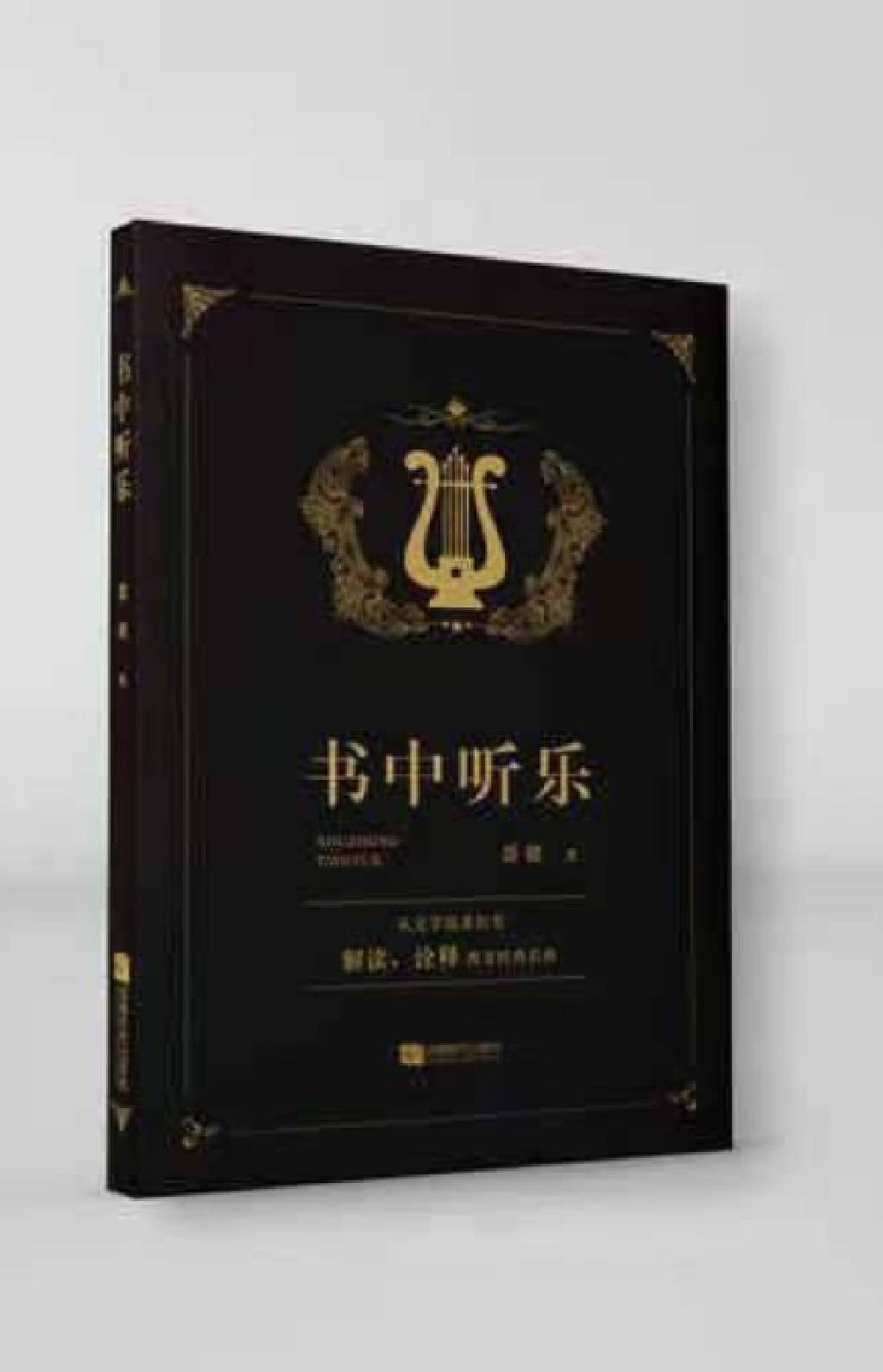Reading | Read "Listen in the Book"
Author:Cover news Time:2022.08.03
Huang Futang/Wen
On the hot summer, I received two books sent by Hou Jun from Beijing. One is his new book "Snow", and the other is Lei Jian's "Listening to the Book".
Brother Lei Jian and I did not know directly. Because of the relationship between Hou Jun, he gave me a new book.

"Listen in the Book"
Open the book, read the preface and post -posts as usual.
Hou Jun described Lei Jian in the preface: "We two often participate in the collection of gaseous activities in the national newspaper and sub -publication industry. Every time he sees him, he always stuffs his headphones and listens to music; He was originally fake, and he heard that his eyes were shining, his interest was full of interest, and he was endless.
In the "Postscript", Lei Jian said: "Like and fall in love with Western classical music, began when he was ignorant. Although he has never been trained in professional music, Western classical music has become my love."
"This is a book written by‘ Love ”, it must be good -looking." While thinking about it, he started reading from the first article. After reading about half, I couldn't help but post a recommendation short post in the WeChat circle of friends: "Recommend this rare book to all friends-" Listen in the Book ". I read about half, wonderful articles, articles I have obtained it. I have n’t read such a good classical music book for many years. ”
Next, it was almost in one breath, read the whole book over again. The conclusion is: the recommendation is right.
Where is this book?
First, it can stimulate your interest and curiosity of classical music. Although most of the tracks written in the book are familiar, after reading the book, I found that there are too many things that I do n’t know and do n’t know. I ca n’t help but find the music and listen. For example, F. V. Suppe Light Cavalry, I have listened to Mr. Cao Peng (he is my official commander) with the Kaohsiung Symphony Orchestra to rehearse and perform this song. After reading the "Military Camp Tenderness" article, I couldn't help but find this song on the Internet, and listened to the general score again.
Second, there are a large number of important common sense in the book, including literary common sense, historical knowledge, the background of writing, and the scriptures of performances. These common sense, don't say that ordinary laymen, even people like me who have eaten classical music meals for a lifetime, are generally lacking. For example, "The Song of Solviger" that many people are familiar with (this song has been compiled into the Huangzhong violin textbook), but I never know that it is so beautiful, infatuated, selfless, and dedicated to it. I don't know its lyrics are so moving:
Winter is coming to spring, I believe you will always return. The summer summer has passed, and I promise you to wait. Regarding you cross the sea, the Lord will guard you. You see you in heaven, and you look forward to your return.
Another example is the symphony poem "Little Witcher" of Paul Docca, which is also a work often performed by Mr. Cao Peng. I have listened to Mr. Cao's explanation of this song during the performance, so I was very impressed. However, it wasn't until the article "The little wizard" was read that the composer Mr. Duka was the composition teacher of Xinghai. Without this French teacher, maybe there would be no Chinese "Yellow River Chorus"!
Third, the book provides a lot of information about the various classical music. They are germinated and spread like seeds. For example, in the article "Master of Xiangxiang", I know that Mozart has learned the real method of creating quadruples from Haydn's string quadruple work, and went online to find Haydn's works to listen carefully. Inadvertently, it was found that in a group of quadranges called Ariel String Quartet, he performed Haydn's works very moving and played. This unintentional discovery made me more music "nutrition" and a group of "teachers" with a group of peers. It's really good for the opening of the roll!
Fourth, most of the classical music works written in the book are related to literature, even music interpretation of literary works. This has made me a great resonance with "I am not alone". Because most of the music works I have written are also related to literary works. For example, "Symphony of the Condor Heroes" and "Xiao Feng Symphony Poem", etc., are inspired by the creation from Jin Yong's martial arts novels; a large number of art songs written by ancient and modern poetry are directly interpreted with music to interpret poetry. Two phases are compared, so how can you be happy!
Recommend this rare good book to all classical music enthusiasts and classical music workers again!
Huang Futang, Chinese, composer, violinist, music critic, educator. Representative works "Symphony of the Condor Heroes", "The Symphony of Xiao Feng", and the opera "Xi Shi"
- END -
"The Story of the Lion Mountain" director Wu Jinyuan: "I want to tell the story of ordinary people"
[Global Times reporter Zhang Zhen] I want to tell a group of ordinary people for decades of life, Wu Jinyuan, a Chinese Hong Kong director who has directed Beauty's Heart and Step by Step, told
Ni Kuang died!He is the Wesley series

Ni KuangNi Kuang, formerly known as Ni Cong, was born in the word. He was born in ...